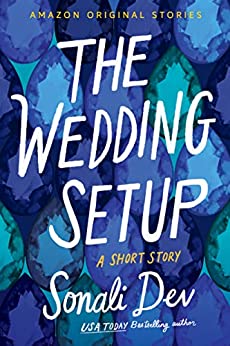 The Wedding Setup: A Short Story
The Wedding Setup: A Short Story by
Sonali Dev Format: eARC Source: publisher Formats available: ebook, audiobook
Genres: contemporary romance,
short stories Pages: 67
Published by Amazon Original Stories on January 11, 2022
Purchasing Info: Author's Website,
Publisher's Website,
Amazon Goodreads From USA Today bestselling author Sonali Dev comes a heartfelt short story about one woman’s journey of self-discovery and what it means to be happy.
Ayesha Shetty lost her brother seven years ago, the same time she lost everything else important to her: her dreams, her fierce independence, and the man she loved. Not wanting to see her mother hurt anymore, she put her wild self away and became the dutiful daughter her mother needed and took on her brother’s role in the family business.
Now her best friend’s big, fat Indian wedding is a chance to get away from her endless duties at the restaurant and maybe even have some fun (if she remembers how). But a setup arranged by her mother, with a doctor no less, is the last thing she needs. The fact that he checks all her mother’s boxes just makes everything better…and worse.
Then Emmitt Hughes shows up. Her brother’s best friend. The love she once chose over family duties and her responsibilities. The one she asked to leave, and who did. The one who knows the real Ayesha. Torn between a love from the past that could cost her the only person she has left and her sense of obligation to her mother, will Ayesha find the strength to stop thinking about what everyone else wants and finally put herself first? Or is the old Ayesha truly gone for good?
My Review:
The Wedding Setup is a short story, so I’m going to try to do it justice in a short review. Especially since this is a jam-packed post with an interview with the author, an excerpt from the story AND a giveaway!
From a certain perspective, this is a story about handling grief – or rather NOT handling grief. Ayesha has put herself in a box in her attempt to be the perfect daughter that she never was – and it’s a straitjacket. But so is the reason for that attempt, the death of her brother and her desperate need to hold onto her mother in the ultimately vain hope of preventing either of them from suffering any more losses. Ayesha’s father died when she was ten, and her mother was the rock that sheltered both her and her brother through the rest of her childhood. When her brother died, they were all each other had left. That and the depth of their grief and the fear of another loss.
But they lost each other along the way – even as they spent 16 hours a day together keeping the family’s restaurant afloat. Hanging onto the last remaining bit of her brother’s dream.
As this story opens, it’s been seven years since Ajay died, and Ayesha’s mother has had enough of living with Ayesha’s obedient ghost – because that’s who it seems has been trudging through the world in Ayesha’s place.
But that is far, far, far from what the story seems to be for most of its length. As Amma does her level best to bring back the old, vibrant, downright combative Ayesha by poking that sleeping tiger with every single stick she can find.
In the hopes that her daughter will come back to life and reach out for her own happy ever after.
Escape Rating A-: I have only one complaint about this story – it’s too damn short. It’s beautiful, it’s marvelous, and all the characters are fascinating – even the ones who only exist in memory. I would have loved this story even more if it had been novel length. But it isn’t so I’ll make do with what I have.
Part of the fun of The Wedding Setup is that the setup of Ayesha is not what either Ayesha or the reader think it is. The story is a gem of misdirection, and the reveal at the end forces both Ayesha and the reader to rethink everything that has happened. And rejoice at the ending.
Also laugh uproariously at the mental picture of a rat in scrubs administering a pap smear. Which is the only way to laugh at one of those necessary evils. Read The Wedding Setup to find out just how that comes to pass. The mental picture, that is.
Interview with Sonali Dev + Excerpt from The Wedding Setup
The Wedding Setup may be a short story, but it is tremendously powerful. How would you describe it to readers?
Thank you. It’s the story of a girl who used to be a rebel who followed her heart and fought for what she wanted, and then her brother’s death leaves her responsible for her widowed mother. It’s about being knocked off your feet and getting stuck, and learning how to stand back up and reclaim yourself.
The story invites us to take an intimate look into a mother-daughter relationship. This is a universal theme, however, you also steep the plot in your own Indian heritage. Can you tell readers what this story means to you as a daughter? What it means to you as an Indian woman?
There is so much of my own relationship with my mother in this book. We’ve always been incredibly close. She’s outspoken and confident and she modeled some powerful behaviors for me growing up about owning her own body and her voice. But there were the other parts where she was a product of her time and culture, believing in absolute terms that it is a woman’s duty to nurture her family, to marry ‘at the right time,’ to be a certain kind of mother. These are things she pushed hard. Things I internalized but also fought to do on my own terms and not hers. Ayesha’s relationship with her mother used to be this way, and then a tragedy changes their dynamic. So, it’s an exploration of how battles for identity get derailed by tragedy and grief and what it takes to heal.
Ayesha’s mom describes her as obedient, responsible, and “always putting everyone else before her own needs.” After hearing this Ayesha (internally) feels hypothermic. Can you explain how these seemingly sweet compliments completely destroy your heroine?
The mother-child bond comes with a kind of intuitive understanding of each other that’s unique to that relationship. So, while Ayesha has lost her fiery spirit and both she and her mother have lost years to their grief and struggle to survive, her mother knows who her daughter is deep down and how much she’s buried. So there’s a very nuanced intent to these ‘compliments’ and they hit the nerve they’re meant to hit. Ayesha’s reaction to these words is her dead parts coming back to life.
It only takes a moment—one second—for Ayesha to break free from her ice…a single word from Emmitt has her coming back to life. Why does she have such a powerful reaction to someone she hasn’t seen in seven years?
Ayesha had a crush on Emmitt for many years before they got together. She’s always had a strong reaction to him. The years they spent together as young adults were years when she came into herself, and felt seen and cherished. Then she loses all of that when her brother dies and they break up. So, it’s a combination of things that come together when Ayesha meets Emmitt again. They have a natural connection, but also, with his return come all the memories of who she used to be and how much she used to let herself feel.
Ayesha has never forgotten how Emmitt turns “her messy, impulsive, unfettered emotion into something beautiful.” But she has forgotten the effect that she has on him. What buried memories are uncovered as she watches Emmitt react to their reunion?
Emmitt has always dealt with the world and the pain it causes him by keeping everyone at arm’s length. But Ayesha destroys his defenses with her ability to love (and do everything else) so fiercely. So, when he loses her he’s already lost his ability to protect himself. Their joint grief is what separated them, so, while they understand each other’s pain they both also understand the loneliness of not having each other to lean on. They’ve had to make the journey to healing individually, but meeting each other again brings up the piece that needs the other to heal.
How did you get to know your couple? How were you able to understand what was needed to heal their broken hearts?
The one theme that threads through all my books is finding yourself on the tightrope between personal freedom and responsibility to family and community. Healing is always about finding or rediscovering your love for yourself. So, I understand my characters through that lens: how have they lost themselves? What about themselves do they need to reclaim and fall in love with? A truly connected couple is one who aids this journey in each other, recognizes it, and supports it.
In a limited number of pages you not only give readers a living, breathing couple, but also an avalanche of equally interesting characters like Ayesha’s best friend, suitor, aunties…and you even create depth with characters that are no longer living. Why was it so important to spend time with these secondary characters? What do they reveal about your hero and heroine?
I believe that as humans we are a sum total of our relationships and the world we live in and build for ourselves. How someone treats other people and how they respond to how they are treated is what constitutes character.
At its heart, every story is about a person who is somehow at odds with the world they live in or with themselves because of the expectations of their world, and the journey they make to resolve that conflict. Ayesha wouldn’t be Ayesha without her mother and Bela, her best friend and the community she was raised in. Bela has been her wild other half growing up, then their paths diverged, but they continued to be each other’s support. Her mother has become a crutch she uses to hold on to her grief. Emmitt’s grief over his friend has run his life for seven years too. So the secondary characters are just as integral to the story as the protagonists.
While the plot focuses on grief, there is also great joy to be found. After all, the backdrop of the story is a giant wedding. What do you personally find the most fun at a traditional Indian wedding celebration?
I’m always only there for the food and dancing! Fine, and getting to dress up. And the wine. Also, maybe the chance to hang out with family and friends I only see at weddings. And the drunk aunties and uncles.
 After readers devour The Wedding Setup, which of your other books would you recommend they read next?
After readers devour The Wedding Setup, which of your other books would you recommend they read next?
First, thank you so much for devouring The Wedding Setup! I’m incredibly proud of my Rajes series, a set of retellings of my four favorite Jane Austen novels set in a politically ambitious Indian American family from Northern California. Pride, Prejudice, and Other Flavors is a gender flipped Pride and Prejudice. Recipe for Persuasion is a two-generational homage to Persuasion set on a Food Network show. Incense and Sensibility, the love story between a gubernatorial candidate and a yoga therapist who can save him but also destroy his campaign, pays tribute to Sense and Sensibility. And the upcoming The Emma Project (May 17th 2022), which is a gender flipped Emma that explores what it means when a person with tremendous privilege offers charity to someone who has much less.
The Wedding Setup Excerpt
Goose bumps rose across Ayesha’s skin, one sharp dot at a time.
“Ayesha.”
That was it. Just that one word. Her name. In a voice that was its own ghost.
She squeezed her eyes shut. One tight squeeze. Tight enough to hurt, tight enough to almost dislodge the false eyelashes Andre had pressed into her lash line one by one with the precision of a surgeon. Then boom! she was in control again and back to Ayesha on Ice.
Eyes blank, face set, she turned toward the voice.
Emmitt.
The impact of him was a body blow.
The entire universe stilled. Words weren’t a thing. Or sound. Breath? What was that?
Ayesha! Get a grip.
No grip. That’s how it had always been. She’d had no grip when it came to Emmitt Hughes. Not even a little bit. Not when she’d spied on him and Ajay playing Mario Kart and Minecraft and GTA for hours, for years. Not when she’d yearned and dreamed and spun stories with him at the center.
I’ve made my love for you, my god.
It was the cheesiest of lines from one of those Bollywood songs her parents had played on repeat at the restaurant. Amma had loved translating the over-the-top lyrics and explaining their nuances.
Back when Amma was full of stories and songs and laughter. Before Ajay.
Ajay.
Her brother’s unspoken name fell between them like a glass bauble and shattered.
“You remember Emmitt,” Edward had the gall to say.
Bela shot him a glare.
You didn’t tell me he would be here. Ayesha threw the silent accusation at her traitorous best friend, who gave her nothing more than another worried look.
No, Eddie. Remind me again who he is? The snarky words stuck in Ayesha’s throat. Old Ayesha would have said them. Old Ayesha said everything.
“Emmitt,” New Ayesha said, every feeling buried under her customer-is-king voice from the restaurant. “Nice to see you again.”
His Adam’s apple bobbed in the long column of his throat. How was he still so darned beautiful?
One swallow, and then he smiled back. Banking feelings where no one saw them had been his thing. Emmitt the Wall. That’s what Ajay had called him. Her brother had been best friends with him since Emmitt had moved to Naperville in fifth grade after his parents’ divorce. Years of friendship, and he’d still held Ajay at that slight distance he’d been so good at. Something she would always wish she hadn’t cured him of.
You broke me, Ayesha.You broke every defense I’ve ever had against the world.
She, Ayesha Shetty—too tall, too dark, too outspoken, too intense, too ambitious, too everything for everyone else had been just enough to break through Emmitt the Wall.
“It’s nice to see you too,” he said gently, sounding . . . she dug through her brain to come up with the right word. Grown-up? Contained?
Good. Because Ayesha was all those things now too. Not a grenade with its fuse pulled, ready to blow up the world.
 Author Biography
Author Biography
USA Today bestselling author Sonali Dev writes Bollywood-style love stories that explore universal issues. Her novels have been named best books of the year by Library Journal, NPR, the Washington Post, and Kirkus Reviews. She has won numerous accolades, including the American Library Association’s award for best romance, the RT Reviewers’ Choice Award for best contemporary romance, and multiple RT Seals of Excellence; has been a RITA finalist; and has been listed for the Dublin Literary Award. Shelf Awareness calls her “not only one of the best but one of the bravest romance novelists working today.” She lives in Chicagoland with her husband, two visiting adult children, and the world’s most perfect dog.
Buy Link: https://amzn.to/3pWDqM8
Social Media Links
Website: https://sonalidev.com/
Facebook: https://www.facebook.com/SonaliDev.author
Twitter: https://twitter.com/Sonali_Dev
Instagram: https://www.instagram.com/sonali.dev/
Goodreads: https://www.goodreads.com/author/show/7025918.Sonali_Dev

a Rafflecopter giveaway
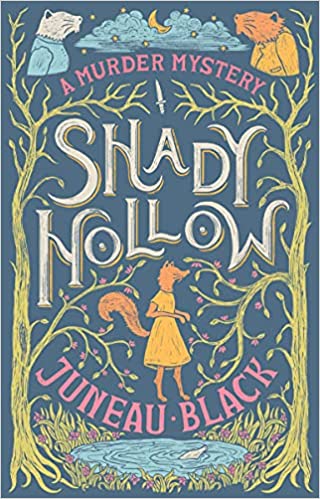 Shady Hollow (Shady Hollow #1) by Juneau Black
Shady Hollow (Shady Hollow #1) by Juneau Black 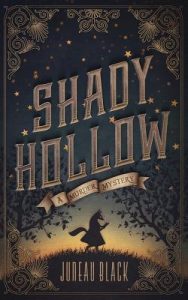 The original U.K. cover (at left) does a bit better job of conveying the darkness that is lurking inside the sleepy little town of Shady Hollow. Because this is the opening book in a series of murder mysteries – admittedly pretty cozy murder mysteries – where all of the characters are VERY anthropomorphized animals.
The original U.K. cover (at left) does a bit better job of conveying the darkness that is lurking inside the sleepy little town of Shady Hollow. Because this is the opening book in a series of murder mysteries – admittedly pretty cozy murder mysteries – where all of the characters are VERY anthropomorphized animals.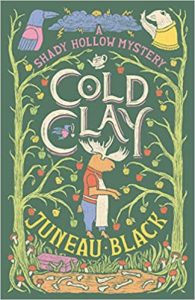 Viewed as creatures, they are adorable and the little touches that remind the reader these are animals draws the reader into the shtick with a smile. But the way the town thinks about itself, the motives for the crime spree, the investigation and most definitely the way that the nosy reporter nearly becomes part of the spree make this a fun, if slightly furry, cozy with just a bit of a twist.
Viewed as creatures, they are adorable and the little touches that remind the reader these are animals draws the reader into the shtick with a smile. But the way the town thinks about itself, the motives for the crime spree, the investigation and most definitely the way that the nosy reporter nearly becomes part of the spree make this a fun, if slightly furry, cozy with just a bit of a twist.
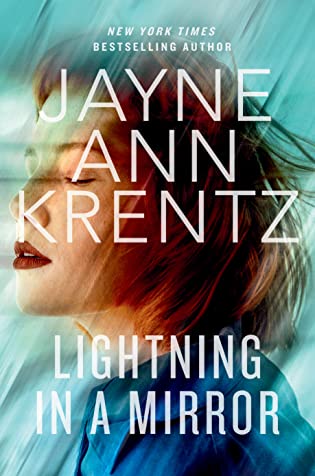 Lightning in a Mirror (Fogg Lake #3) by
Lightning in a Mirror (Fogg Lake #3) by 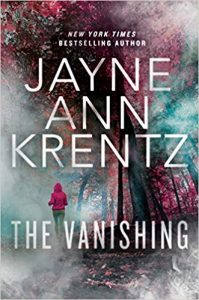 The entire
The entire 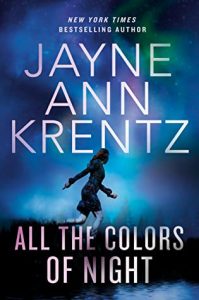 Rancourt is a wild-card to everyone. A chameleon talent who fools everyone, all the time, about the true nature of the threat he presents. But he never fools Olivia. She sees him for the predator he is – and doesn’t run.
Rancourt is a wild-card to everyone. A chameleon talent who fools everyone, all the time, about the true nature of the threat he presents. But he never fools Olivia. She sees him for the predator he is – and doesn’t run. That such a project would be rife with criminal shenanigans isn’t a stretch either. And neither is the idea that some people wouldn’t be able to let it go. That’s where Fogg Lake and the Bluestone Project sit, at that intersection of conspiracy theories and government black operations.
That such a project would be rife with criminal shenanigans isn’t a stretch either. And neither is the idea that some people wouldn’t be able to let it go. That’s where Fogg Lake and the Bluestone Project sit, at that intersection of conspiracy theories and government black operations.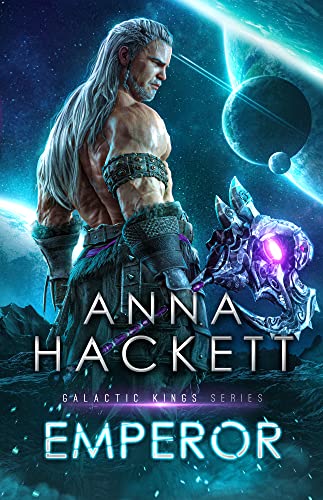 Emperor (Galactic Kings #2) by
Emperor (Galactic Kings #2) by  Emperor reads more than a bit like it’s part 2 of the story we started in
Emperor reads more than a bit like it’s part 2 of the story we started in  Escape Rating A-: As I said, Emperor reads like it’s the second part of that story we began in Overlord. Mallory and Poppy arrived together, and they’re besties. Brodin, the Damari Emperor, agrees to help Poppy as a favor to his brother Rhain. So in a lot of ways, Emperor reads like a continuation of Overlord.
Escape Rating A-: As I said, Emperor reads like it’s the second part of that story we began in Overlord. Mallory and Poppy arrived together, and they’re besties. Brodin, the Damari Emperor, agrees to help Poppy as a favor to his brother Rhain. So in a lot of ways, Emperor reads like a continuation of Overlord.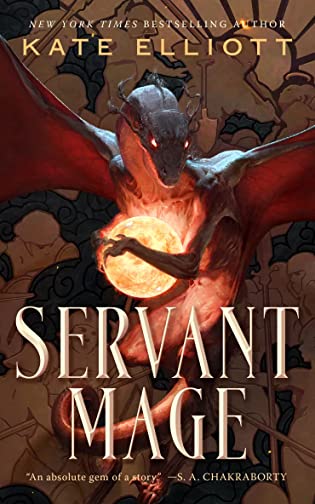 Servant Mage by
Servant Mage by 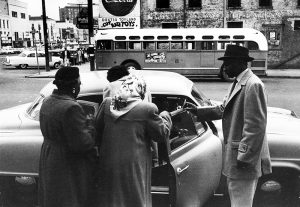

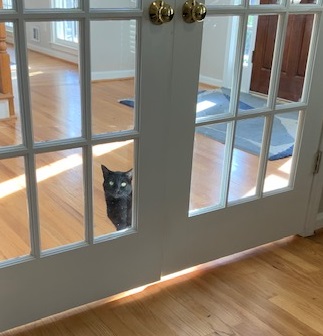
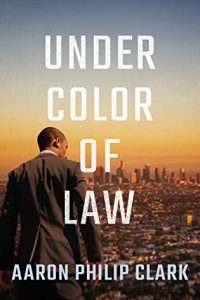 Blog Recap:
Blog Recap: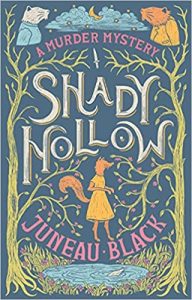 Coming This Week:
Coming This Week:













 The Wedding Setup: A Short Story by
The Wedding Setup: A Short Story by  After readers devour The
After readers devour The  Author Biography
Author Biography
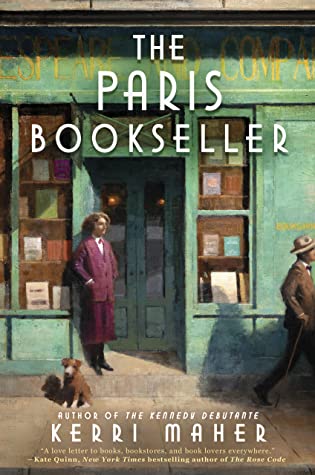 The Paris Bookseller by
The Paris Bookseller by 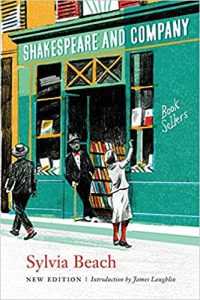 But, as happens more often than we think, it’s only fiction that has to be plausible. History just has to be true. And this story, or at least the big, important, supporting bones of this story, are that. Or close enough. (Beach herself wrote a memoir of this period, titled, of course,
But, as happens more often than we think, it’s only fiction that has to be plausible. History just has to be true. And this story, or at least the big, important, supporting bones of this story, are that. Or close enough. (Beach herself wrote a memoir of this period, titled, of course, 
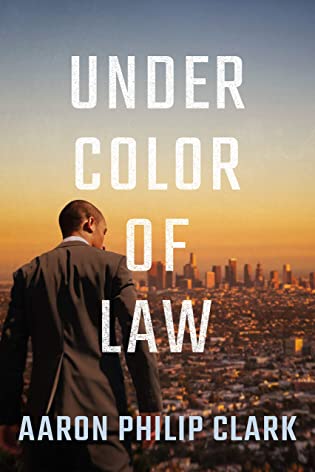 Under Color of Law by
Under Color of Law by